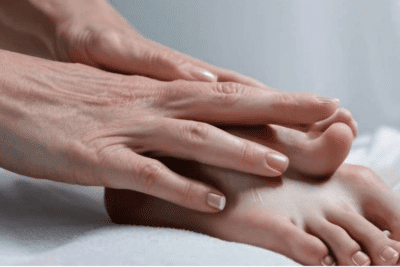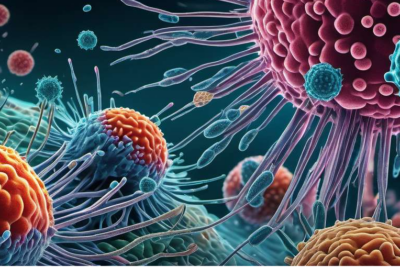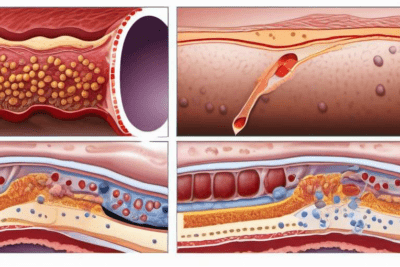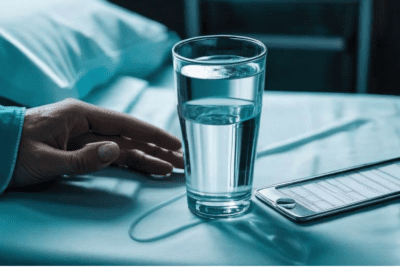
Increased urination is a common issue that can signal various health conditions, such as urinary tract infections, diabetes, or bladder problems. It is important to pay attention to this symptom and seek medical advice if other concerning symptoms accompany it. Understanding the causes and implications of increased urination is essential for proper management and treatment.
🔍 Seeking a breakthrough in Type 2 Diabetes management?
Discover our expert insights and innovative approaches on ‘How to Cure Diabetes’.
Click to transform your health journey today!











What you\'ll find in this article?
Understanding Increased Urination
Increased urination can be a concerning symptom that may signal an underlying health issue. Understanding the reasons behind frequent urination is vital for proper management and treatment. Here, we delve into the causes and symptoms associated with increased urination.
Causes of Frequent Urination
- Urinary Tract Infections (UTIs)
- Diabetes Mellitus
- Bladder Dysfunction
- Kidney Stones
Symptoms to Watch for
It's important to be aware of accompanying symptoms that may indicate a more serious underlying condition. Keep an eye out for:
- Fever
- Abdominal Pain
- Blood in Urine
- Abnormal Genital Discharge
If you experience frequent urination along with any of these symptoms, seeking prompt medical attention is crucial for an accurate diagnosis and appropriate treatment.
Nighttime Urination and Its Implications
Explore our specialized services in diabetes care 🌟.
From personalized diet plans to effective exercise routines, we have what you need to take control of Type 2 Diabetes.
Visit our services page now!
Waking up frequently during the night to urinate can disrupt your sleep and affect your overall well-being. Nocturia, the medical term for this condition, can be a symptom of underlying health issues.
- It may be linked to conditions such as diabetes, heart disease, or kidney problems.
- Older adults often experience nocturia due to reduced bladder capacity and changes in hormone levels.
- Consumption of diuretics, alcohol, or caffeine close to bedtime can worsen nighttime urination.
Understanding the implications of nighttime urination is essential to address potential health concerns and improve your quality of sleep.
Back Pain and its Connection to Increased Urination
Back pain can be related to increased urination in various ways. The proximity of the kidneys to the spine means that issues such as kidney stones or infections can often cause back pain. In turn, these kidney-related problems can lead to increased urination as the body tries to expel waste and toxins.
- Back pain caused by kidney stones may also result in changes in urination frequency and discomfort during urination.
- Conditions like urinary tract infections (UTIs) can cause both back pain and increased urination due to the inflammation and irritation of the urinary tract.
- For some individuals, certain back conditions like herniated discs or spinal issues can also contribute to nerve irritation that impacts bladder control, leading to increased urination.
Understanding the relationship between back pain and increased urination can help in seeking appropriate medical help and treatment to address the underlying issues causing these symptoms.
Medical Terminology Demystified: Increased Urination Explained
When it comes to understanding increased urination, medical terminology can sometimes be intimidating. Let's break down the terms to make it easier to grasp:
- Polyuria: This term refers to the production of abnormally large volumes of urine. It can be a sign of various underlying health conditions.
- Nocturia: Nocturia is the medical term for waking up during the night to urinate. It can disrupt sleep and may indicate certain health issues.
- Oliguria: Oliguria is the production of an abnormally small amount of urine. It can be a sign of kidney problems or dehydration.
- Anuria: Anuria is the absence of urine production. This is a serious condition that requires immediate medical attention.
By understanding these terms, you can have a clearer picture of the possible conditions associated with increased urination.
Increased Urination During Pregnancy: What to Expect and How to Manage
Pregnancy can bring about various changes in the body, including increased urination. This is a common occurrence due to the growing baby putting pressure on the bladder. It is important for expectant mothers to be aware of what to expect and how to manage this increase in urination.
- Expect to visit the bathroom more frequently than usual. As the baby grows, the pressure on the bladder increases, leading to the need for more frequent urination.
- Stay hydrated but be mindful of the timing. It is important to drink plenty of water during pregnancy, but consider reducing fluid intake closer to bedtime to minimize nighttime trips to the bathroom.
- Practice pelvic floor exercises. Strengthening the pelvic floor muscles can help control urinary urges and reduce the frequency of urination.
- Discuss any concerns with your healthcare provider. If you experience pain, burning sensation, or notice any changes in urine color, it is important to consult your healthcare provider to rule out any underlying issues.
✨ Other articles you might be interested in:
- Excessive Thirst: Warning Sign of Underlying Health Issues
- Unexplained Weight Loss: Signs and Solutions for a Healthier You
- Fatigue and Weakness: How to Manage Symptoms for Better Health
- Blurred Vision: Causes, Diagnosis, and Treatment in the US
- Slow Healing of Cuts and Wounds in the United States: A Comprehensive Guide



